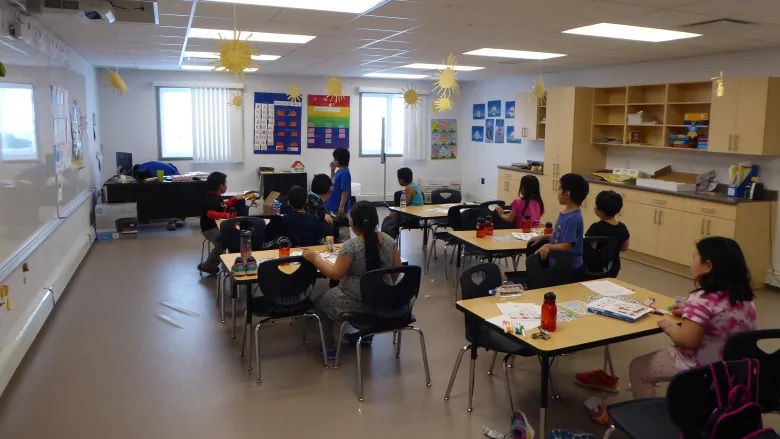Northern Canada: Nunavut, Nunavik face major teacher shortages as school year begins

Teacher shortages are continuing across Nunavut and Nunavik for another year, with both regions continuing to hire even as schools begin to open for the fall.
In Nunavik — the northern third of Quebec home to the province’s Inuit — the Kativik School Board was missing 84 teachers as of Aug. 9.
That means that in three schools, there are no teachers for more than one grade level, said Harriet Keleutak, director general of the school board.
“We have been in that situation before. It’s challenging. It’s getting harder and harder every year, especially when other school boards in Quebec are also lacking teachers.”

For local hires — the educators who teach Inuktitut and culture — the number of vacancies tripled from last year, Keleutak said.
The Government of Nunavut is also struggling to fill all of the territory’s vacant teacher positions. By early August, 278 teachers had been hired, but another 60 positions remained open: five in the Kivalliq region, eight in the Kitikmeot, and 47 in the Qikiqtani.
“From where I sit I see lot of diligent work in moving toward filling the positions,” said Bill Cooper, executive director of Kivalliq region school operations for the Department of Education. He adds that the department is posting positions online and going to job fairs to attract teachers.

But the Nunavut Teachers’ Association wants the conversation to be about retention, not just recruitment, said association president John Fanjoy.
Across the territory, just shy of 50 per cent of teaching positions required filling this year. In the Qikiqtani region, that number sits at 56 per cent.
“The Government of Nunavut really needs to take an inward look at why are we losing so many teachers every year, why are so many [Northern Teacher Education Program] graduates leaving in the first five years, why are so many non-Inuit teachers leaving our communities and leaving our territory after a short period of time in Nunavut,” he said.
As teachers leave the territory, they have the opportunity to do an exit survey, Fanjoy said. More often than not, those surveys talk about violence in schools and lack of program support from the employer, he said.
“Our teachers, they love our students. It’s not our students, it’s not our communities that are having our teachers leave the profession, it’s the working conditions in the classrooms.”

‘Major housing issues’
Those conditions can be particularly hard on newly hired teachers.
“They are having major housing issues in terms of the quality of housing when they move to the community. They are sharing with people they have only just met for the first time,” Fanjoy said.
“They’re not getting paid on time, they haven’t received their first pay cheque or pay stub and they are not being paid at the level of their qualifications.”
Housing can be a particularly difficult issue for Inuit who have become teachers. Fanjoy said. Many start the teaching profession with a family, making shared accommodations not appropriate. In some cases, no housing is offered at all.
“If you’re an Inuit culture and language specialist they usually do not offer staff housing,” he said. “And they should. Because they are teachers in our schools and they should have the same rights and benefits as every teacher across the system.”
To be able to mitigate the retention issues, there needs to be more study, Cooper said. He added that many of these issues will be addressed as part of a 10-year strategy on recruitment and retention by the Government of Nunavut. There is no timeframe for that to be released.
In the meantime, hiring continues and all schools are set to open on time even with the shortages.
While Fanjoy is happy to hear students will be able to get back to the classroom on schedule, he has concerns.
“That worries me that the teachers are going to get burned out too soon. It worries me in terms of how that extra work is going to be divided among the teaching staff in the schools that are affected,” he said.
With files from Michelle Pucci
Related stories from around the North:
Canada: School system in Canada’s Northwest Territories needs major reform, education minister says, CBC News
Finland: New climate studies program coming to schools in Finland, Yle News
Sweden: Inequality a problem in Swedish schools: UNICEF report, Radio Sweden
United States: University of Alaska: Governor halves vetoes, spreads cuts over three years, Alaska Public Media




Greetings! My husband and I are both US teachers (he teaches English and French and I am both gen ed and art specialist). We are in the process of immigrating to Canada, applying for our certifications in BC and trying to navigate the EE PR system. We would love to find out how best to apply to teach in Nunavut! Can we start with a work visa? Is it advised we learn essential Inuktitut, Inuvialuktun and other Inuit language first before applying?